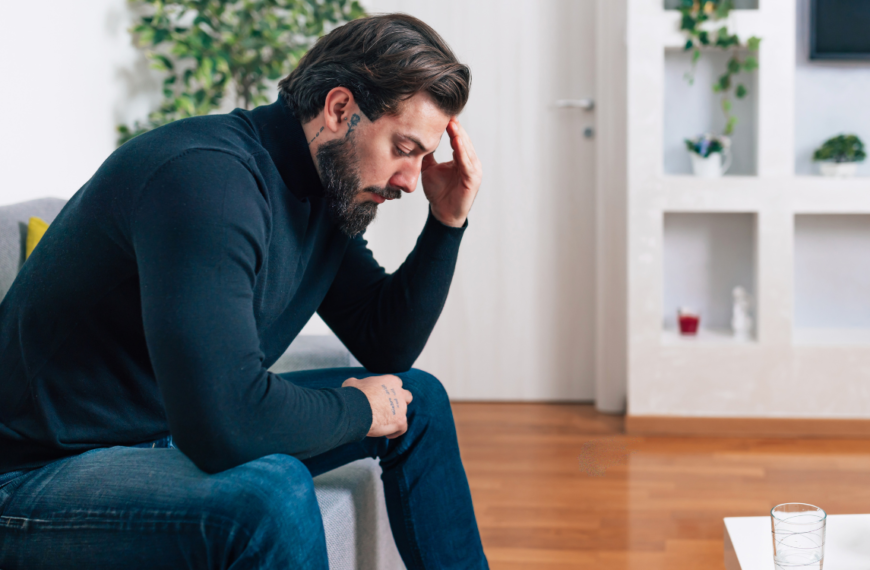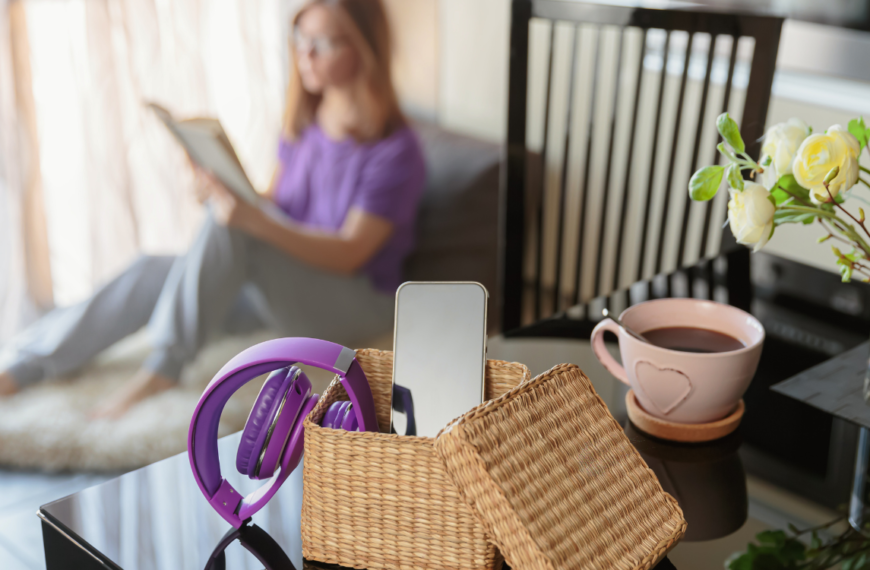Anxiety is a common experience for many people, manifesting in various forms such as worry, fear, or even panic. Whether it’s triggered by work, relationships, or daily challenges, anxiety can significantly affect one’s quality of life. Fortunately, there are effective strategies that can help manage anxiety and promote a sense of calm and balance. In this post, we will explore five simple ways to manage anxiety in daily life that anyone can incorporate into their routine.
1. Practice Mindfulness and Deep Breathing
Mindfulness is the practice of staying present and fully engaging with the here and now. Often, anxiety stems from worrying about future events or dwelling on past experiences. Mindfulness helps in grounding oneself in the present moment, reducing the power of anxious thoughts.
How to Practice Mindfulness:
- Start with deep breathing exercises. Take a deep breath in through your nose for four seconds, hold it for seven seconds, and exhale slowly through your mouth for eight seconds. Repeat this process several times until you feel calmer.
- Body scan meditation is another effective mindfulness technique. Begin by closing your eyes and slowly moving your attention from your toes to your head, noticing any tension or discomfort. This practice helps you become aware of your physical state and relax areas of tension.
- Incorporate mindfulness into daily activities like eating, walking, or even doing household chores. Focus on the sensations, smells, sounds, and sights around you. This can help distract the mind from anxious thoughts and promote relaxation.
By regularly practicing mindfulness and deep breathing, you can train your mind to stay calm and focused, making it easier to manage anxiety.
2. Develop a Regular Exercise Routine
Exercise is a powerful tool for managing anxiety. Physical activity releases endorphins, which are natural mood lifters, and reduces levels of cortisol, a stress hormone. Regular exercise can help you feel more energetic, improve your mood, and reduce anxiety symptoms.
Tips for Getting Started:
- Find an activity you enjoy: Whether it’s walking, jogging, swimming, dancing, or yoga, choose an exercise that you find enjoyable. This makes it more likely that you will stick with it.
- Start small: If you’re new to exercising, start with 10-15 minutes a day and gradually increase the duration and intensity. The key is consistency rather than intensity.
- Incorporate movement into your day: If finding time for exercise seems challenging, try incorporating movement into your daily routine. Take the stairs instead of the elevator, walk or bike to work, or take short breaks to stretch.
Physical activity doesn’t just improve your physical health; it also has a profound impact on your mental well-being, helping you to manage anxiety more effectively.
3. Maintain a Balanced Diet and Hydration
Your diet can have a direct impact on your mood and anxiety levels. Consuming a balanced diet rich in whole foods—such as fruits, vegetables, lean proteins, and whole grains—provides the necessary nutrients to support brain health and emotional balance.
Key Nutritional Tips to Manage Anxiety:
- Avoid caffeine and sugar: These can increase anxiety levels and create fluctuations in energy and mood. Opt for water, herbal teas, or decaffeinated beverages instead.
- Eat regularly: Skipping meals or going long periods without eating can cause blood sugar levels to drop, leading to feelings of anxiety. Aim for balanced meals throughout the day to keep your energy and mood stable.
- Stay hydrated: Dehydration can affect your mood and increase anxiety symptoms. Aim to drink at least eight glasses of water daily.
By focusing on good nutrition and hydration, you can help your body and mind function at their best, which in turn can help to manage anxiety.
4. Establish Healthy Sleep Habits
Quality sleep is crucial for mental health. Poor sleep can exacerbate anxiety and lead to a vicious cycle of sleeplessness and heightened anxiety. Establishing healthy sleep habits can help break this cycle and improve your overall well-being.
Steps to Improve Your Sleep:
- Create a bedtime routine: Aim to go to bed and wake up at the same time each day, even on weekends. Establishing a regular sleep schedule helps regulate your body’s internal clock.
- Wind down before bed: Spend the last 30-60 minutes before bed winding down. Engage in relaxing activities such as reading, listening to calming music, or practicing gentle stretches. Avoid screens, as the blue light emitted by phones and computers can interfere with the sleep hormone melatonin.
- Make your sleep environment comfortable: Ensure that your bedroom is cool, dark, and quiet. Invest in a good mattress and pillows to support restful sleep.
Good sleep hygiene can significantly reduce anxiety and help you wake up feeling refreshed and ready to tackle the day.
5. Challenge Negative Thoughts with Cognitive Behavioral Techniques
Anxiety often involves irrational fears and negative thinking patterns. Cognitive-behavioral therapy (CBT) techniques can be effective in challenging and changing these patterns. The core idea is to identify and reframe negative thoughts that contribute to anxiety.
How to Use Cognitive Behavioral Techniques:
- Identify automatic thoughts: Start by becoming aware of the negative thoughts that arise when you feel anxious. These might include fears of failure, rejection, or worst-case scenarios.
- Evaluate the evidence: Ask yourself if there is concrete evidence supporting these thoughts or if they are based on assumptions or fears. Often, you will find that the evidence is weak or nonexistent.
- Reframe the thought: Replace the negative thought with a more balanced, positive one. For example, if you think, “I will fail at this task,” reframe it to, “I am capable, and I will do my best.”
Practicing these cognitive techniques regularly can help you gain better control over your thoughts and reduce anxiety over time.
Conclusion
Managing anxiety is a journey that requires patience, practice, and the willingness to try different strategies until you find what works best for you. You can significantly reduce anxiety and improve your overall quality of life by incorporating these five simple practices—mindfulness and deep breathing, regular exercise, a balanced diet, healthy sleep habits, and cognitive-behavioral techniques.
Remember, it is important to seek professional help if your anxiety becomes overwhelming or interferes with daily functioning. At Audacity of Hope, we provide comprehensive mental health services, including counseling and structured programs like the Outpatient Mental Health Program (OMHP) and Psychiatric Rehabilitation Program (PRP), to support your mental well-being.
Empower yourself to take control of your mental health and embrace a life of balance and calm.

















